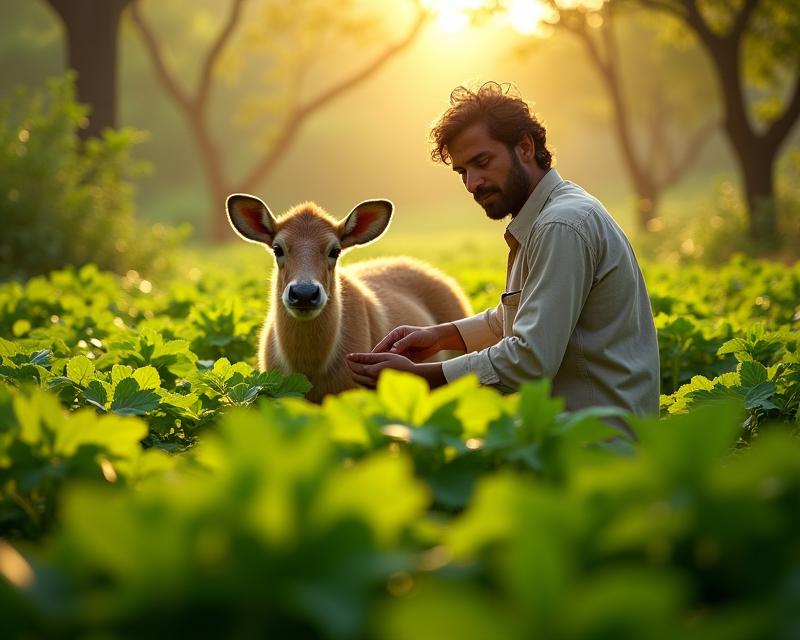Sacred Plants: Ancient Wisdom for Modern Farmers
Publish in Sustainable Farming el 06/07/2025 17:54
Sacred Plants: Ancient Wisdom for Modern Farmers
Hello everyone! As farmers, gardeners, and ranchers, we're constantly seeking ways to improve our yields, protect our land, and connect with the natural world. Have you ever wondered about the deeper connections between plants, spirituality, and agriculture? Hindu texts, ancient and profound, offer a fascinating glimpse into this relationship, highlighting the sacredness of certain plants and trees and suggesting practices that resonate even today.

For centuries, Hindu scriptures have revered specific plants and trees, not just for their practical uses (food, medicine, shelter), but for their spiritual significance. These aren't just random choices; they're deeply rooted in cosmology and symbolism. Think of the Neem tree (Azadirachta indica), often called the "Tree of Life." It's considered sacred for its medicinal properties, insecticidal qualities, and its ability to purify the environment. Hinduism views Neem as a protector, and its leaves and bark have been used for generations to ward off disease and pests – a natural alternative to many modern pesticides!
Another prominent example is the Tulsi plant (Holy Basil). More than just an herb, Tulsi is considered a sacred plant, often kept in homes and temples. It's believed to purify the air, promote well-being, and even connect us to the divine. Cultivating Tulsi isn't just about harvesting its leaves for tea or medicinal purposes; it's about creating a spiritually enriching environment. The practice of caring for Tulsi is seen as an act of devotion and a way to cultivate inner peace. Beyond Tulsi, many other plants like Mango, Banana, and various flowering trees hold symbolic importance, representing prosperity, fertility, and auspiciousness.
So, what does this mean for us as farmers? It’s not about adopting religious practices, but about recognizing the inherent value and power of the plants we cultivate. Consider incorporating these principles into your farming practices. Could you plant Neem trees around your fields to naturally deter pests? Could you dedicate a small space to growing Tulsi, not just for its medicinal properties, but also for its positive energy? Understanding the historical and spiritual significance of plants can deepen your connection to the land and inspire more sustainable and holistic farming methods. It's a reminder that agriculture is not just about production; it's about nurturing life and respecting the interconnectedness of all things. Exploring these ancient traditions can offer valuable insights into creating a more harmonious and thriving farm.





